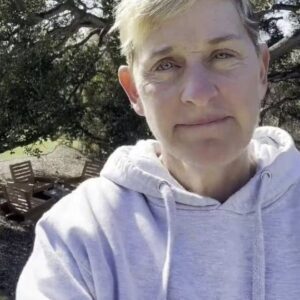It was around 9:30 at night, and I was just getting my youngest ready for bed when the call came through. Dispatch said a child had dialed 911—but didn’t speak. They traced the call to a small house in my zone, so I headed over to check it out.
When I knocked, a little boy opened the door, standing there barefoot in pajama shorts, holding a phone like it was the most important thing he owned. He looked nervous but determined.
He told me he was hungry. That he hadn’t eaten all day. No adults were home—just him and his little sister, who was asleep in the back room.
My heart sank.
I asked where his mom or dad was, but he just shrugged and looked down. The place was clean but bare. No food on the counters. The fridge was mostly empty except for some ketchup packets and an old jug of milk.
I crouched down and asked if I could take a picture with him—for my own memory, not for show. He smiled big for the first time.
Then I called for backup—not to arrest anyone, but to bring food. I wasn’t sure what I was stepping into, but I knew I wasn’t leaving them like that.
That night turned into something I never expected…
When Officer Ramirez showed up twenty minutes later with a few bags of groceries from the 24-hour market, the boy’s eyes lit up like it was Christmas morning. We set the bags on the small kitchen table, and I could see his hands shaking as he started pulling items out—bread, peanut butter, apples, juice boxes.
I gently asked him again, “Buddy, what’s your name?”
“Zayden,” he whispered.
“And your sister?”
“Aubri.”
“How old are you, Zayden?”
“Seven. Aubri’s three.”
I nodded, trying to keep my voice calm. “Do you know where your mom is?”
This time, he answered. “She went to work. She said she’d be back after dinner. But she didn’t come.”
I glanced at Ramirez. He looked as concerned as I felt.
We stayed with them for about an hour, making sure they ate something and got settled. I even read a quick bedtime story to Aubri once she woke up groggy from her nap. But deep down, I couldn’t shake the feeling that something wasn’t right.
Just as we were about to leave, headlights swept across the window. A beat-up silver sedan pulled into the driveway. A woman jumped out, looking frantic and exhausted.
“Zayden!” she called, rushing to the door.
She froze when she saw us standing there.
“I’m Officer Hale,” I introduced myself calmly. “We were called here tonight. Everything’s okay, ma’am, but we were worried. Your son called 911.”
Tears welled up in her eyes instantly. “Oh my God… I-I didn’t know. My phone died. I picked up a second shift and—” she covered her mouth. “I thought I’d be home by seven.”
Her name was Talia. Mid-twenties, thin, worn down. You could see it in her eyes—the weight of trying to survive.
She explained that she worked two jobs. Her sitter canceled last-minute, and instead of risking getting fired, she made the impossible choice to leave Zayden in charge for a few hours. She never intended to be gone that long.
I should’ve felt angry. But all I saw was a mom stuck between terrible options.
“I’m so sorry. I know it was stupid. I just—I couldn’t lose this job.”
Ramirez and I exchanged glances. Technically, we were supposed to report this. It qualified as neglect. But standing there, looking at her broken shoes and tired kids, I saw more than a case file.
I saw a family trying to hold on.
“I’m not here to punish you, Talia,” I said gently. “But this can’t happen again. We’re going to get some people involved to help. Not to take your kids away, but to give you some support.”
She nodded, sobbing quietly, as she hugged both her children tightly.
Over the next few weeks, I stayed in touch. Social services connected her with a community resource center. She got help with child care, food assistance, and even managed to land a more stable day job at a medical supply warehouse.
One afternoon, about three months later, I stopped by to check in.
The house looked different. Brighter. There was a small flower pot by the door, some kid drawings taped to the window. Talia greeted me with a smile this time—an actual smile.
“Officer Hale,” she said, stepping aside. “Come in.”
Zayden ran up to me, proudly holding a report card. “Look! I got all B’s!”
“That’s amazing, buddy,” I said, ruffling his hair.
Aubri toddled over with a stuffed giraffe, giggling.
As I sat with them for a while, Talia brought over coffee. “I never got to say thank you. You didn’t treat me like a criminal that night. You gave me a chance.”
I shrugged. “Sometimes people just need someone to believe in them.”
Before I left, Zayden asked, “Are you gonna keep visiting?”
I smiled. “I’ll always be around if you need me.”
LIFE LESSON:
Sometimes, people aren’t bad—they’re just overwhelmed. A little bit of compassion can change an entire family’s future.
If this story touched your heart, please SHARE and LIKE to spread the message. You never know who might need to hear it today.





